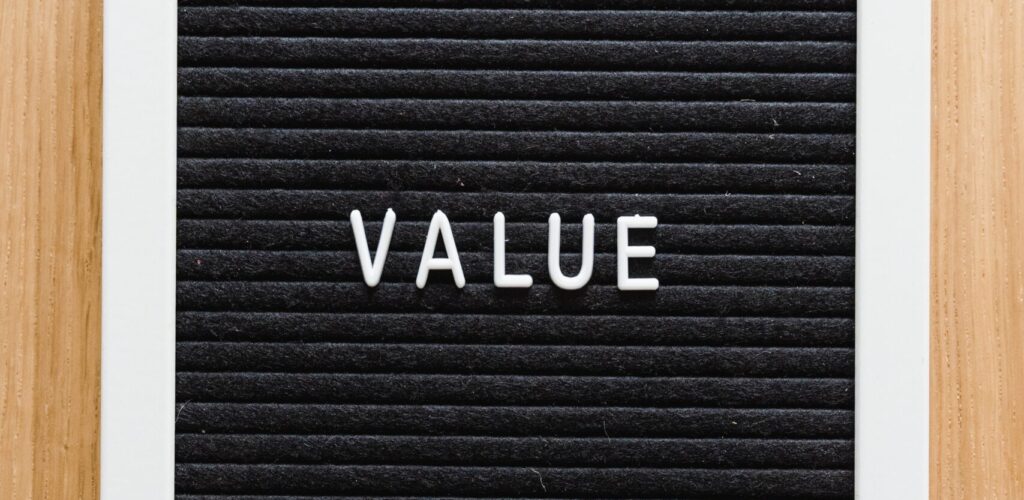If you’re planning to sell your business, make an acquisition or raise business capital, it’s important to know how much your business is worth. You don’t want to over-value your business as this can deter buyers or investors, but you also don’t want to sell the business short.
To help you find the right balance, here’s everything you need to know about how to value a business.
What is a business valuation?
A business valuation is simply the process of determining the market value of a company. There are several reasons why knowing how to do this can be useful:
- A business valuation can help put a price tag on your business if you’re looking to sell it.
- It can help provide investors with a realistic estimate of how much your business is worth.
- You might need to provide valuation figures as part of your tax return.
- A business valuation can help set a fair price if staff want to buy or sell shares in your company.
- Valuing your business can help you get a better idea of its financial health and focus your efforts on the areas that need improving.
What affects the value of a business?
There are a number of factors that can affect the value of a business. Tangible assets such as your business premises, land, stock and equipment are easy to value. But you will also need to consider intangible assets such as:
- Your company’s reputation
- The value of your business’ customers
- Business trademarks
- The strength and experience of your management team
- The reason for the valuation, for example, if you’ve been forced to sell
- How well established your business is
Your business’ valuation can also be affected by the general condition of the economy, including interest rates and whether or not your business’ services or products are in demand. Similarly, your financial records, including your cash flow and level of debt, can impact your valuation.
How do you value a business?
There are several ways to value a business as outlined below:
Price to earnings ratio (P/E)
If your business has a solid track record of profitability, the price/earnings ratio technique can be a good way to value your business. If you’re a public company, you can calculate it by dividing the current market price of a share by the earnings per share.
If you’re a private company, you will need to look at the financials of similar public companies and apply their price to earnings ratio to your business. You can find company’s historic P/E ratios in the financial section of the papers and then you multiply your profits by the ratio figure.
Most businesses use a P/E ratio of between four and 10, with companies with a high forecast profit growth having a higher figure. Companies within certain industries such as tech and IT will usually have a much higher P/E ratio compared to a high street business like an estate agency.
As an example, if your company’s net profits were R200,000 and comparable companies had an average P/E ratio of five, you would multiply R200,000 by five to get a valuation of R1,000,000.
Just bear in mind that shares of quoted companies are easier to buy and sell which makes them more attractive to investors. This means that small unquoted companies tend to have a P/E ratio that is around 50% lower than a comparable quoted company.
Cost of entry
This simply means working out how much it would cost to set up a similar business to yours. To calculate this you need to consider startup fees, the cost of employing and training staff, the cost of developing products and services, and tangible assets. Consider where you could make savings and subtract that from the figure.
Value of the assets within a business
If your business is well established with lots of tangible assets – if you’re in manufacturing or property for example – this can be a better way of carrying out a valuation. To do an asset valuation, you’ll need to work out the net book value of the business – these are the assets recorded in the company’s accounts. You will then need to adjust the figures according to what the assets are actually worth.
Discounted cash flow
This can be a more complicated method as it relies on assumptions about the business’ future. It aims to work out what the future cash flow would be worth today and is based on the assumption that R1 today is worth more than R1 tomorrow due to inflation.
You can work this out by adding the dividends forecast for the next 15 years or so, plus a residual value at the end of the period. You then apply a discount rate of between 15% to 25% to work out what it would be today.
Context within the industry
In certain industries, where businesses change hands frequently, there are rules of thumb that you can use to value a business operating in the same sector. For example, a retail business is normally valued on factors such as business revenue, the number of customers it has, or the number of outlets.
Valuing on what can’t be measured
There are a number of reasons why someone might want to buy a business – it doesn’t solely need to be about the company’s financials. If your business is in a desirable location or has established relationships with customers or suppliers, it might be more valuable to a buyer.
Can you value a business based on revenue?
One of the most basic ways of valuing a business is using average weekly sales. Combine your total revenue over a set period, say the financial year. Then divide the total revenue by the number of weeks in the financial year, excluding VAT.
This can be a quick way to put a price tag on your business and can indicate how popular your products or services are and how well sales are going. However, valuing your business this way doesn’t tell you much about operations efficiency, your costs or investments.
How do I find how much is my business worth?
A business is ultimately only worth what someone is prepared to pay for it. As well as looking at the above valuation methods, there are steps you can take which will help you to achieve a good valuation.
For a start, make sure you have a solid business plan that focuses on how you plan to achieve your results and goals. You should also look at reducing risk in your business and make sure you have good processes in place, such as where you store financial records.
Finally, it’s sensible to talk to your accountant to help you come to a realistic valuation.
Try our business valuation calculator to find out how much your business is worth.






 yet? Register here!
yet? Register here!